aphids
sandandsun
12 years ago
Related Stories
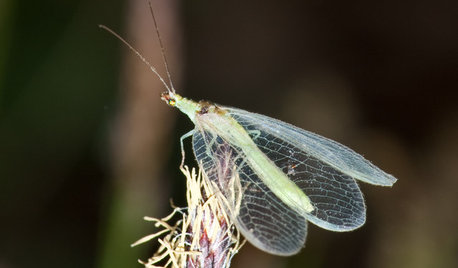
GARDENING GUIDESLook Out for Lacewings: Beneficial Insects Coming to a Garden Near You
Lacewings are delicate insects that produce alligator-like, hungry offspring that devour aphids and other garden pests
Full Story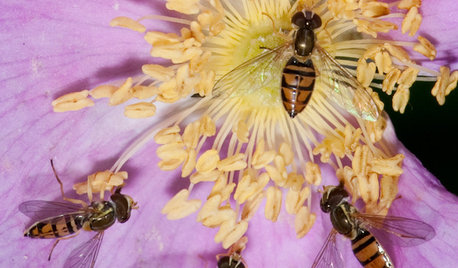
GARDENING GUIDESThis Fly Is One of the Most Beneficial Insects Around
Meet the syrphid fly, a colorful pollinator that also beats chemicals for controlling aphids and other garden pests
Full Story
GARDENING GUIDESGreat Design Plant: Rosa Banksiae a Low-Maintenance Beauty
This thornless, disease- and insect-resistant rose brings showers of white or yellow flowers to the spring garden
Full Story
EDIBLE GARDENSGarden BFFs? Why Your Vegetables Are Begging for Companion Plants
Foster friendships among plants for protection from pests, pollination support and color camaraderie
Full Story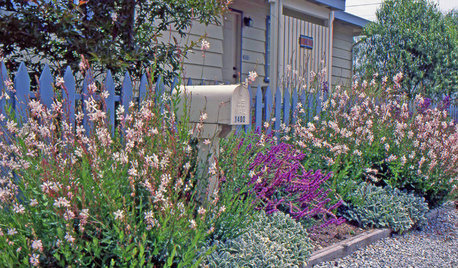
GARDENING GUIDESGreat Design Plant: Gaura Lindheimeri
Delicate, butterfly-shaped flowers ‘float’ above the foliage of this lovely, drought-tolerant perennial
Full Story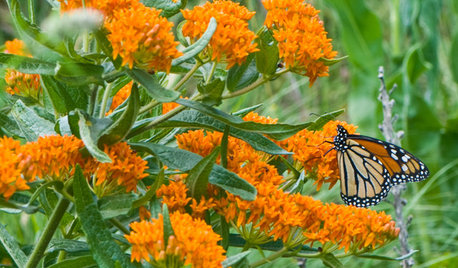
GARDENING GUIDESGreat Design Plant: Butterfly Milkweed, a Beacon in the Prairie
Vivacious orange flowers for you, nectar for the butterflies and bees. Asclepias tuberosa is worth planting for more reasons than one
Full Story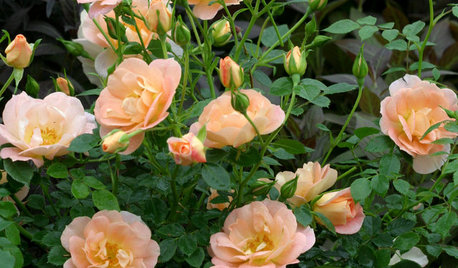
GARDENING GUIDES6 Wonderfully Easy Roses for Any Gardener
Look like an expert even if you're just starting out, with these low-maintenance gems of the rose world
Full Story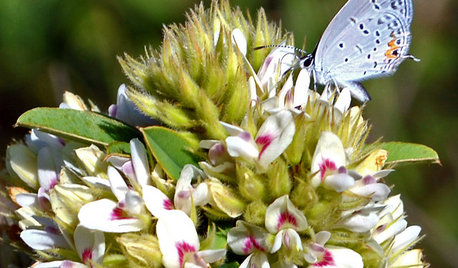
GARDENING GUIDES5 Prairie Wildflowers That Can Heal Your Soil
Get free, organic soil fertilizer with nitrogen-pumping plants that draw pollinators too
Full Story
GARDENING AND LANDSCAPINGBid Bad Garden Bugs Goodbye and Usher In the Good
Give ants their marching orders and send mosquitoes moseying, while creating a garden that draws pollinators and helpful eaters
Full Story
HOUSEPLANTSHow to Force Amaryllis Bulbs Indoors
Enjoy vibrant red blossoms even as gardens turn snowy white, by teaching this hardy repeat performer to ignore the calendar
Full Story






behlgarden
jacqueline9CA
Related Discussions
Why are my aphids silver (grey)??? They are aphids???
Q
Aphids vs. Ladybugs---Aphids Winning!!
Q
Re aphids - don't ants eat aphids?
Q
Aphids, Aphids and more Aphids....Oh MY!!!!
Q
henry_kuska
jerijen
seil zone 6b MI
Joyce91
henry_kuska
jerijen
sandandsunOriginal Author
User
sandandsunOriginal Author
henry_kuska
hoovb zone 9 sunset 23
jerijen
lavender_lass
ogrose_tx
sandandsunOriginal Author
seil zone 6b MI
scottys
sandandsunOriginal Author
collinw
sandandsunOriginal Author
Brittie - La Porte, TX 9a
flaurabunda
floridarosez9 Morgan
flaurabunda
RpR_
floridarosez9 Morgan
henry_kuska
flaurabunda
mike_rivers
henry_kuska
jerijen
roseblush1
sandandsunOriginal Author
RpR_
sandandsunOriginal Author
roseblush1
mnkitty
sandandsunOriginal Author
flaurabunda
henry_kuska
henry_kuska
sandandsunOriginal Author
mike_rivers
flaurabunda
henry_kuska
claire25